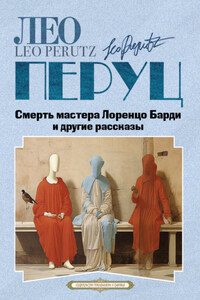In some measure, the story of the Sun Maid is an allegory.
Both the heroine and the city of her love grew from insignificant beginnings; the one into a type of broadest womanhood, the other into a grandeur which has made it unique among the cities of the world.
Discouragements, sorrows, and seeming ruin but developed in each the same high attributes of courage, indomitable will power, and far-reaching sympathy. The story of the youth of either would be a tale unfinished; and those who have followed, with any degree of interest, the fortunes of either during any period will keep that interest to the end.
There are things which never age. Such was the heart of the Maid who remained glad as a girl to the end of her century, and such the marvellous Chicago with a century rounded glory which is still the glory of a youth whose future magnificence no man can estimate.
E. R., Baltimore, January, 1900.
CHAPTER I.
AS THE SUN WENT DOWN
With gloom in his heart, Black Partridge strode homeward along the beach path.
The glory of a brilliant August sunset crimsoned the tops of the sandhills on the west and the waters of the broad lake on the east; but if the preoccupied Indian observed this at all, it was to see in it an omen of impending tragedy. Red was the color of blood, and he foresaw that blood must flow, and freely.
“They are all fools. All. They know that Black Partridge cannot lie, yet they believe not his words. The white man lies, and works his own destruction. His doom be on his head!”
As his thought took this line the chief’s brow grew still more stern, and an expression of contempt curled the corners of his wide, thin lips. A savage though he was, at that moment he felt himself immeasurably superior to the pale-faces whom he had known; and in the consciousness of his integrity he held his tall form even more erect, while he turned his face toward the sky in gratitude to that Great Spirit who had made him what he was.
Then again he remembered the past, and again his feather-adorned head drooped beneath its burden of regret, while his brown fingers clasped and unclasped themselves about a glittering medal which decorated his necklace, and was the most cherished of his few possessions.
“I have worn it for long, and it has rested lightly upon my heart; but now it becomes a knife that pierces. Therefore I must return it whence it came.”
Yet something like a sigh escaped him, and his hands fell down straight at his sides. Also, his narrow eyes gazed forward upon the horizon, absently, as if their inward visions were much clearer than anything external. In this manner he went onward for a little distance, till his moccasined foot struck sharply against something lying in his path, and so roused him from his reverie.
“Ugh! Ugh! So. When the squaw dies the papoose must suffer.”
The soft obstruction was a little child, curled into a rounded heap, and fast asleep upon this primitive public highway. The touch of the red man’s foot had partially wakened the sleeper, and when he bent and laid his hand upon her shoulder, she sprang up lightly, at once beginning to laugh and chatter with a gayety that infected even the stolid Indian.
“Ugh! The Little-One-Who-Laughs. Why are you here alone, so far from the Fort, Kitty Briscoe?”
“I runned away. Bunny rabbit runned away. I did catch him two times. I did find some posies, all yellow and round and – posies runned away, too. Ain’t that funny? Kitty go seek them.”
Her laughter trilled out, bird clear, and a mischievous twinkle lighted her big blue eyes.
“I runned away. Bunny rabbit runned to catch me. I runned to catch bunny. I caught the posies. Yellow posies gone – I go find them, too.”
As if it were the best joke in the world, the little creature still laughed over her own conceit of so many runnings till, in whirling about, she discovered the remnants of the flowers she had lost upon the heat-hardened path behind her. Indeed, when she had dropped down to sleep, overcome by sudden weariness, it had been with the cool leaves and blossoms for a couch. Now the love of all green and growing things was an inborn passion with this child, and her face sobered to a keen distress as she gazed upon her ruined treasures. But almost at once the cloud passed, and she laughed again.
“Poor posies, tired posies, sleepy, too. Kitty sorry. Put them in the water trough and wake them up. Then they hold their eyes open, just like Kitty’s.”
“Ugh! Where the papoose sleeps the blossoms wither,” remarked Black Partridge, regarding the bruised and faded plants with more attention. They were wild orchids, and he knew that the child must have wandered far afield to obtain them. At that time of year such blooms were extremely rare, and only to be found in the moist shadows of some tree-bordered stream quite remote from this sandy beach.
“Oh, dear! Something aches my feet. I will go home to my little bed. Pick up the posies, Feather-man, and take poor Kitty.”
With entire confidence that the Indian would do as she wished, the small maid clasped his buckskin-covered knee and leaned her dimpled cheek against it. It proved a comfortable support, and with a babyish yawn she promptly fell asleep again.














